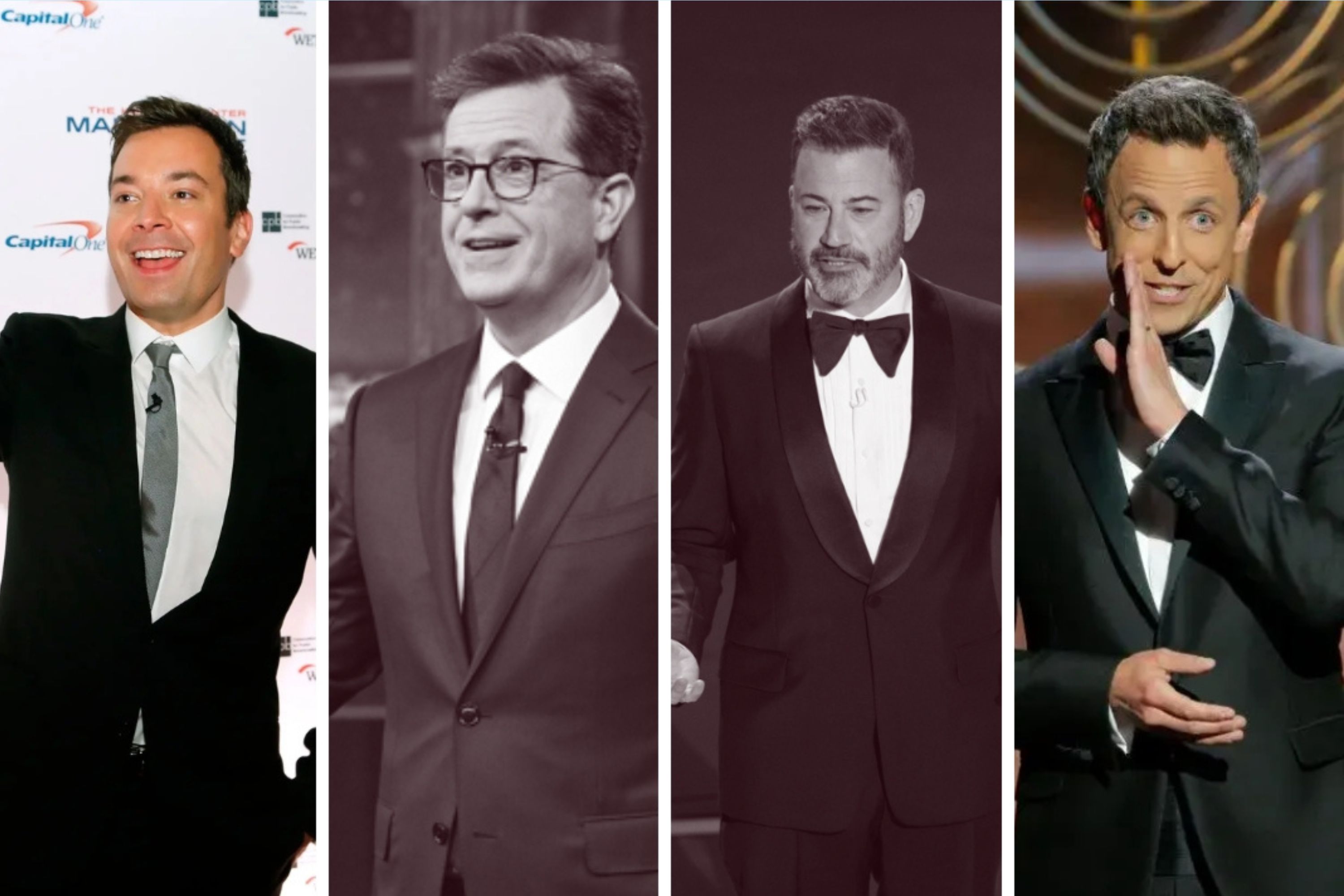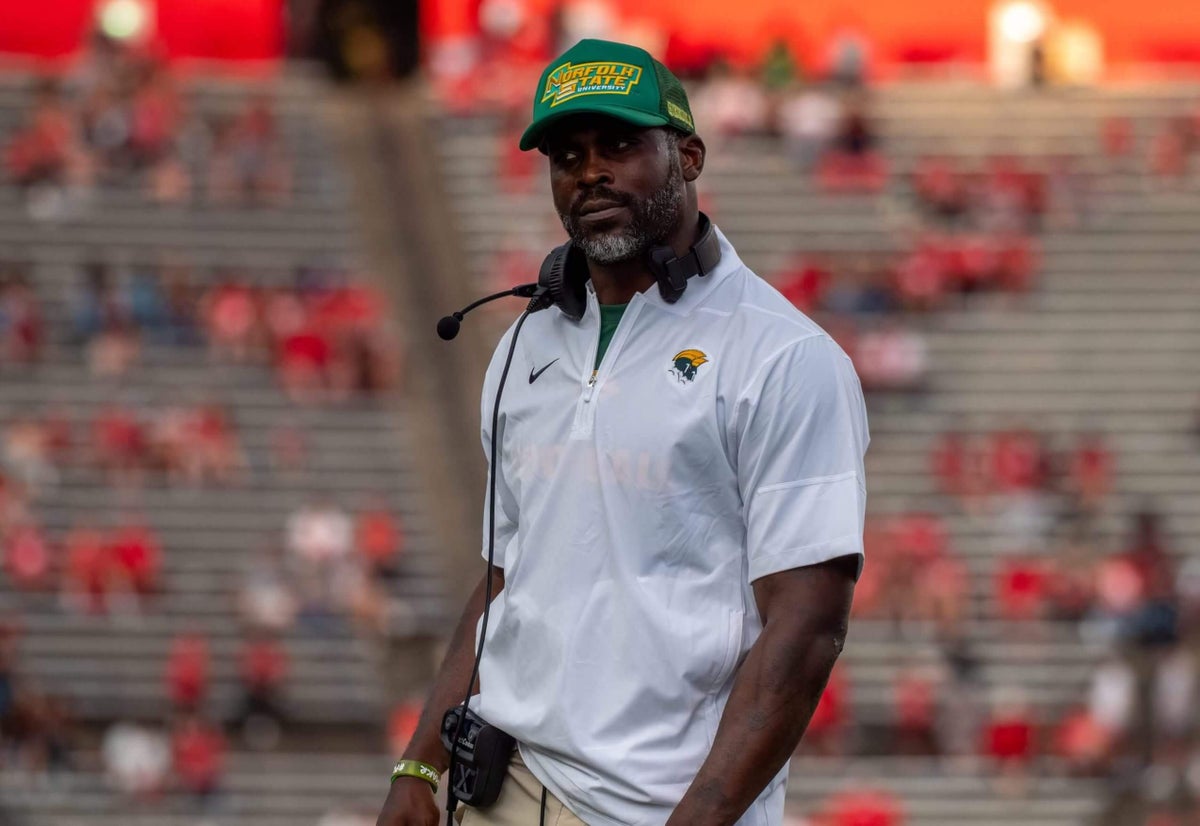
When CBS axed The Late Show with Stephen Colbert earlier this year, speculation swirled that it was retaliation—just days after Colbert slammed Paramount over its $16 million settlement with President Trump. CBS denied it, citing financial reasons, but the backlash was fierce.
One person who had a strong opinion on the news? President Trump. “I absolutely love that Colbert got fired,” he posted on Truth Social. “I hear Jimmy Kimmel is next.”
Turns out, he was right.
Jimmy Kimmel Live! was suspended “indefinitely” after Kimmel’s controversial remarks about the assassination of conservative activist Charlie Kirk.
The fallout has ignited fierce debate over cancel culture and free speech, and begs the question: Is another host next?
Plenty has happened since Kimmel was taken off the air.
Let’s break it down.
On September 15, Kimmel faced backlash for his monologue following Charlie Kirk’s assassination, especially for suggesting suspected shooter Tyler Robinson had MAGA ties:
“We hit some new lows over the weekend, with the MAGA gang desperately trying to characterize this kid who murdered Charlie Kirk as anything other than one of them and doing everything they can to score political points from it.”
Robinson’s political leanings became a point of intense speculation, especially after President Donald Trump attributed the political violence in America to the “radical left” after the shooting. This claim was also disputed by some.
A family member noted Robinson had grown increasingly political and critical of Charlie Kirk, a sentiment later supported by texts released by prosecutors.
Kimmel was reportedly planning to address the issue head-on when his next show rolled around.
But it was too late, especially with FCC Chair Brendan Carr already weighing in.
The Aftermath
Soon after, Carr publicly criticized Kimmel’s remarks and suggested regulatory consequences for claiming Charlie Kirk’s assassin was MAGA-aligned:
“Disney needs to see some change here, but the individual licensed stations that are taking their content, it’s time for them to step up and say this, you know, garbage to the extent that that’s what comes down the pipe in the future isn’t something that we think serves the needs of our local communities. But, this sort of status quo is obviously not acceptable where we are.”
Following Carr’s interview, Nexstar Media Group, the owner of several ABC affiliate stations, announced that it would stop airing the show “for the foreseeable future” over Kimmel’s remarks.
Nexstar Media Group will continue to be a key player in this story.
Sinclair Broadcast Group Vice Chairman Jason Smith criticized Kimmel’s recent remarks as “deeply insensitive.” The company announced it will not reinstate Jimmy Kimmel Live! on its ABC affiliates until ABC shows renewed professionalism and accountability.
In its place, Sinclair will air a tribute to Charlie Kirk and has demanded Kimmel issue a formal apology and make a personal donation to Kirk’s family and Turning Point USA.
Audience members of the taping of the show were reportedly notified of the suspension as they made their way into the studio.
On Thursday night, both Jimmy Fallon and Stephen Colbert voiced support for Kimmel. Fallon expressed that he had no idea what was going on, calling Kimmel a “decent, funny and loving guy,” and expressed hope for his return.
Colbert declared, “Tonight, we are all Jimmy Kimmel,”
“With an autocrat, you cannot give an inch…if ABC thinks this is going to satisfy the regime, they are woefully naive, and clearly, they’ve never read the children’s book ‘If You Give a Mouse a Kimmel.’ And to Jimmy, just let me say, I stand with you and your staff 100 percent.”
Reaching across the political aisle, many Kimmel critics insisted that he had it coming, siding with his suspension.
Like Kimmel, commentary on Kirk’s death has sparked real-world consequences. MSNBC analyst Matthew Dowd was dismissed for suggesting the gunshot was celebratory, and numerous individuals nationwide have faced employer backlash over their remarks.
And in the wake of Kirk’s assassination, some are questioning whether the U.S. is entering uncharted territory when it comes to free speech.
Cancel Culture/ Free Speech
The dynamics of “cancel culture” appear to be shifting.
Once criticized by the political right as a progressive tool for silencing conservative voices, it may now be wielding in reverse. Following Kirk’s assassination, public and professional backlash has targeted those who have made light of his death, signaling a new phase of accountability.
Vice President JD Vance closed his guest-hosted episode of The Charlie Kirk Show by urging viewers to report those expressing negative views of Kirk to their employers. A website known as the Charlie Kirk Data Foundation briefly cataloged instances of “anti-Kirk extremism,” including public mockery or celebration of his death.
Some argue the Trump administration is overreaching, with conservative voices like Tucker Carlson warning that efforts to curb “hate speech” risk infringing on First Amendment protections:
“You hope Charlie Kirk’s death won’t be used by a group we now call bad actors to create a society that was the opposite of the one he worked to build, You hope that! You hope a year from now, the turmoil we’re seeing in the aftermath of his murder won’t be leveraged to bring hate speech laws to this country.”
But could there be more at play, perhaps an another motive behind the situation?
Nexstar’s Merger
Let’s circle back to Nexstar, one of the biggest station owners in the U.S, and their current attempt to complete a merger with fellow TV giant, Tegna.
The nature of the merger, valued at $6.2 billion, requires the approval of the FCC, and for it to loosen longstanding ownership regulations.
These include federal laws barring a single entity from owning TV stations that together reach over 39 percent of American households, and guidelines on the total number of stations that can be owned in a single market.
Adding Tegna would increase the number up to roughly 80%.
Nexstar CEO Perry Sook has also publicly welcomed the Trump-era FCC’s deregulatory stance:
“The initiatives being pursued by the Trump administration offer local broadcasters the opportunity to expand reach, level the playing field, and compete more effectively with the Big Tech and legacy Big Media companies that have unchecked reach and vast financial resources. We believe TEGNA represents the best option for Nexstar to act on this opportunity.”
This has raised questions about the extent to which this decision may also have been guided by additional motivations.
The Pressure Remains
It seems Carr’s position as FCC chair has brought the media landscape into new territory, one that has not been reached in recent times, or under previous FCC leadership.
Following the 2024 presidential campaign, partisan groups filed complaints accusing ABC, CBS, NBC, and a local Fox station of “news distortion” in their election coverage. Initially dismissed by FCC Chair Jessica Rosenworcel as efforts to “weaponize” the agency against the free press, some cases were reopened under new Chair Brendan Carr.
But are other late-night hosts next in line? That’s still uncertain. But based on President Trump’s own remarks, it’s clear these shows haven’t escaped his disapproval.
“They’re 97% against, they give me wholly bad publicity… I mean, they’re getting a license, I would think maybe their license should be taken away. When you have a network and you have evening shows and all they do is hit Trump…They’re not allowed to do that.
That leaves Jimmy [Fallon] and Seth [Meyers], two total losers, on Fake News NBC. Their ratings are also horrible. Do it NBC!!! President DJT”
And the FCC may be expanding its focus. In a podcast interview with conservative commentator Scott Jennings, Carr hinted that scrutiny could shift from late-night shows to mid-morning programming:
“I think it’s worthwhile to have the FCC look into whether The View, and some of these other programs that you have, still qualify as bona fide news programs and therefore are exempt from the equal opportunity regime that Congress has put in place.”



